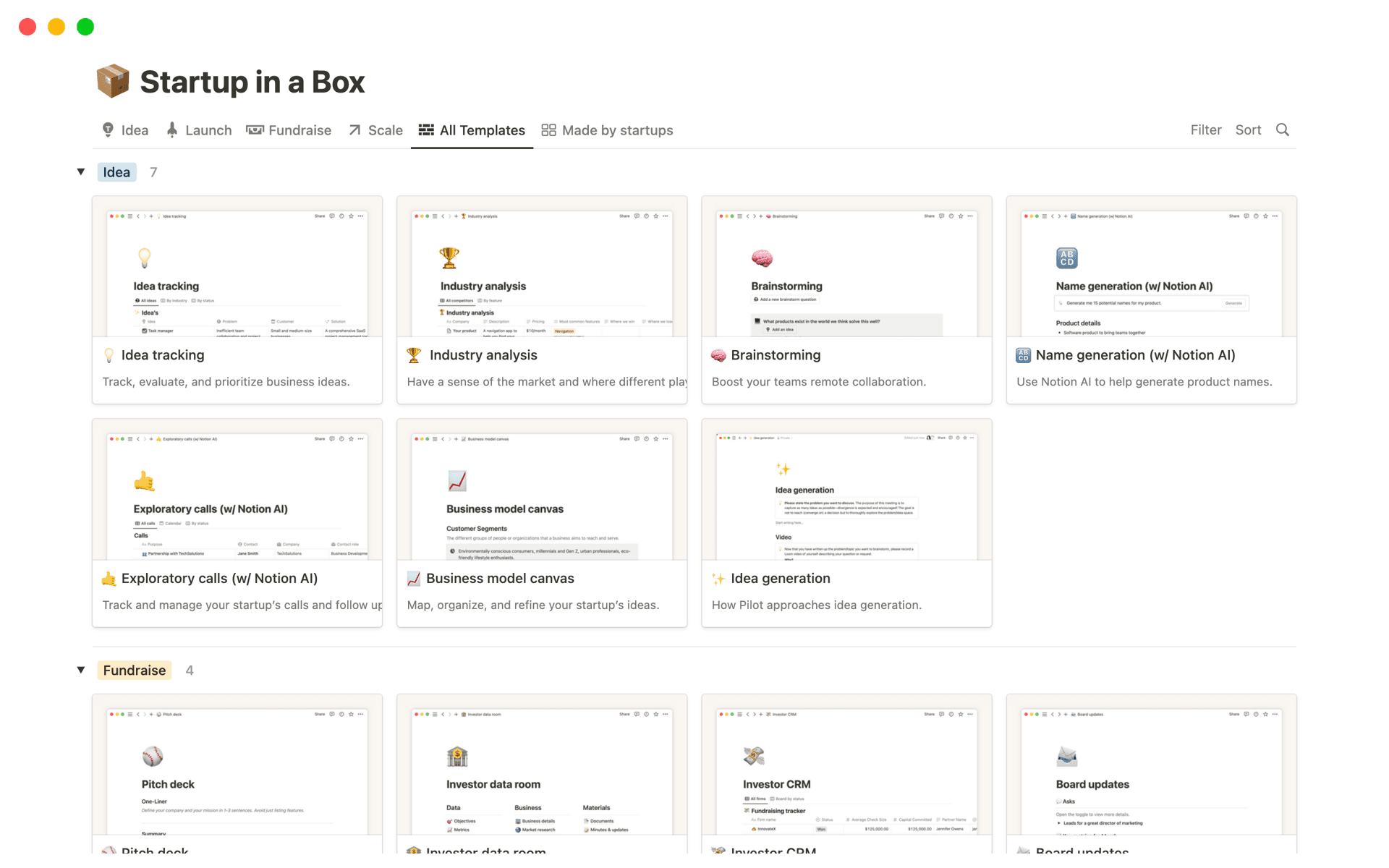Launch planning is crucial for setting clear goals, managing timelines, and coordinating efforts across teams. It ensures that all aspects of a project or product release are thoughtfully considered and executed. A Launch Planning template in Notion can streamline this process by providing a structured framework to organize tasks, milestones, and resources, making it easier to visualize progress and stay on track.
Before you dive into creating your own Launch Planning, take a look at these Notion templates to simplify and enhance your planning process. They offer a variety of tools and strategies to suit different needs, from startup operations to technology roadmaps.
What Should Launch Planning Templates Include?
Choosing the right launch planning template in Notion can streamline your project from inception to execution. Here are key components to look for in an effective template:
Timeline and Milestones: This section should clearly outline the project timeline, including all critical milestones. It helps in tracking progress and ensures timely delivery.
Resource Allocation: Details about who is responsible for what and the resources allocated to each task are essential. This ensures that every team member knows their responsibilities and resources are efficiently used.
Risk Management: A good template includes a plan for potential risks. This section should help you anticipate, mitigate, and manage risks effectively.
Stakeholder Communication: Regular updates and checkpoints with stakeholders are vital. The template should facilitate communication plans to keep everyone informed and engaged.
Selecting a template with these components will help you maintain control over your project, ensuring a smooth and successful launch.
What Should Launch Planning Templates Avoid?
Choosing the right launch planning template in Notion can streamline your project significantly. However, it's equally important to know what features might hinder rather than help. Here are a few to steer clear of:
Overly Complex Structures: Templates that feature too many layers and subtasks can complicate the launch process rather than simplifying it. Look for clarity and ease of use.
Fixed Timeframes: Avoid templates with rigid, pre-set timelines. Every launch is unique, and your template should allow flexibility to adjust timelines based on real-time progress and setbacks.
Non-Collaborative Features: Ensure the template supports collaboration. Templates that do not support real-time updates and team interaction can create communication barriers.
Ultimately, the best template is one that balances structure with flexibility, promotes team collaboration, and keeps the launch process straightforward and manageable.













